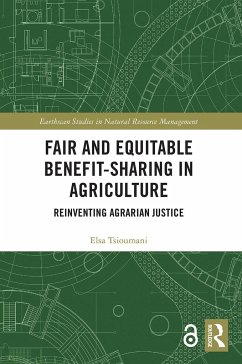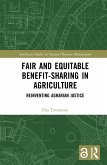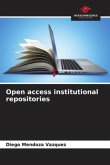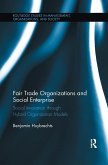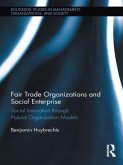This book explores the emergence and development of the legal concept of fair and equitable benefit-sharing, and its application in agriculture. Developed in the 1990s, the concept of fair and equitable benefit-sharing has been deployed in an ever-wider variety of international instruments, including those on biodiversity, climate change and human rights. A lack of clarity persists, however, on what fair and equitable benefit-sharing requires and entails, and whether its implementation supports or eventually undermines equity and justice. This book examines these questions in the area of land, food and agriculture, addressing for the first time several instances of the agricultural production chain, including research and development, land governance and land use and access to markets. It identifies challenges regarding implementation of the concept as enshrined in environmental treaties and soft-law instruments, with a focus on the International Treaty on Plant Genetic Resources for Food and Agriculture, the Voluntary Guidelines on Tenure and the UN Declaration on the Rights of Peasants. It investigates its role, enabling conditions and limitations, in a contradictory policy context involving environmental, food security and human rights objectives but also a growing web of multilateral and bilateral trade and investment agreements. Linking international law research with a socio-legal analysis, the book addresses four grassroots examples, which offer ideas for institutional and legal innovation from the local to the global level.¿¿¿¿¿¿¿¿¿¿¿¿¿ This interdisciplinary title will be of great interest to students and scholars of international environmental law, agriculture, land law, development studies and global governance, as well as policymakers and practitioners working in these fields. "The Open Access version of this book, available at https://doi.org/10.4324/9780429198304, has been made available under a Creative Commons Attribution-Non Commercial-No Derivatives 4.0 license."
Bitte wählen Sie Ihr Anliegen aus.
Rechnungen
Retourenschein anfordern
Bestellstatus
Storno

